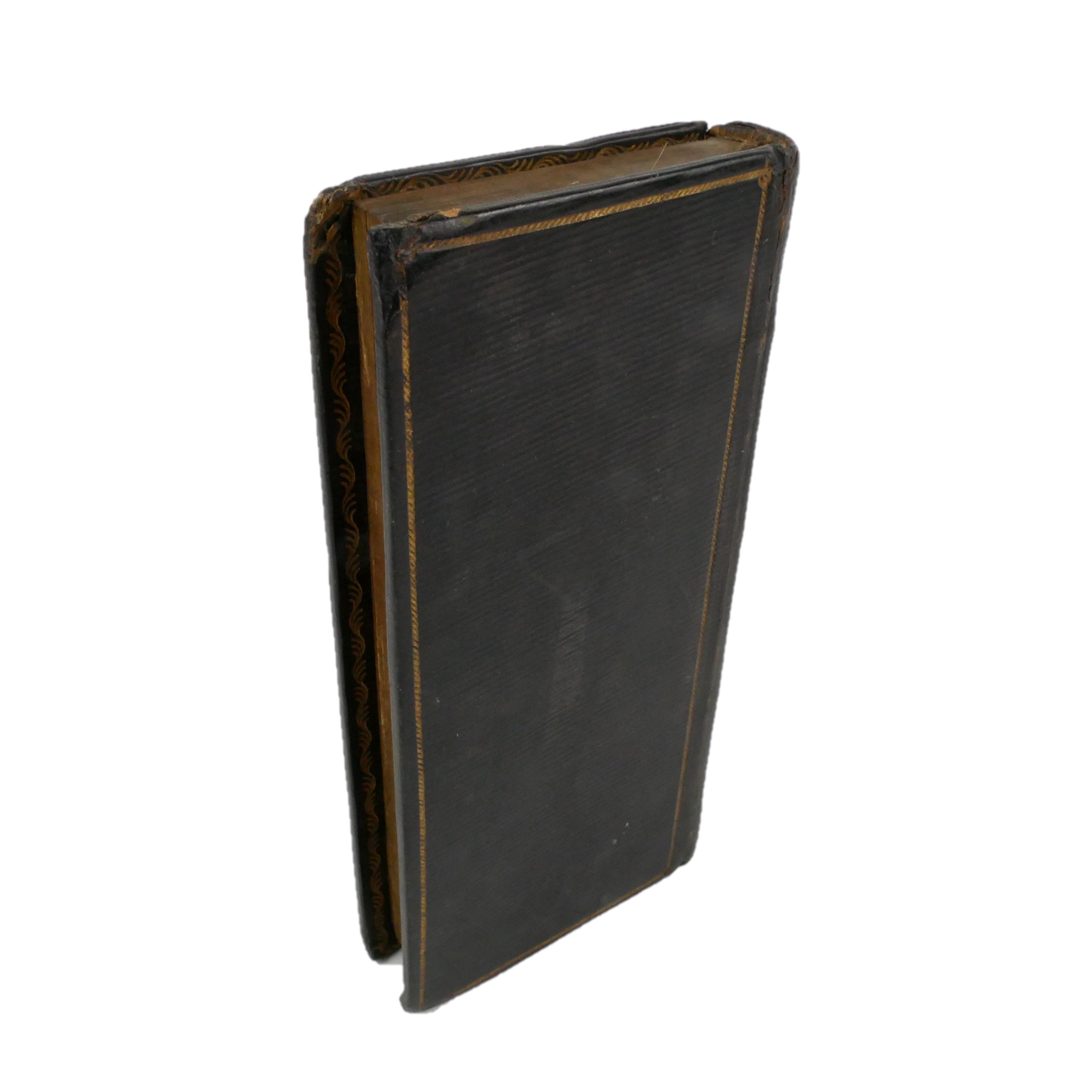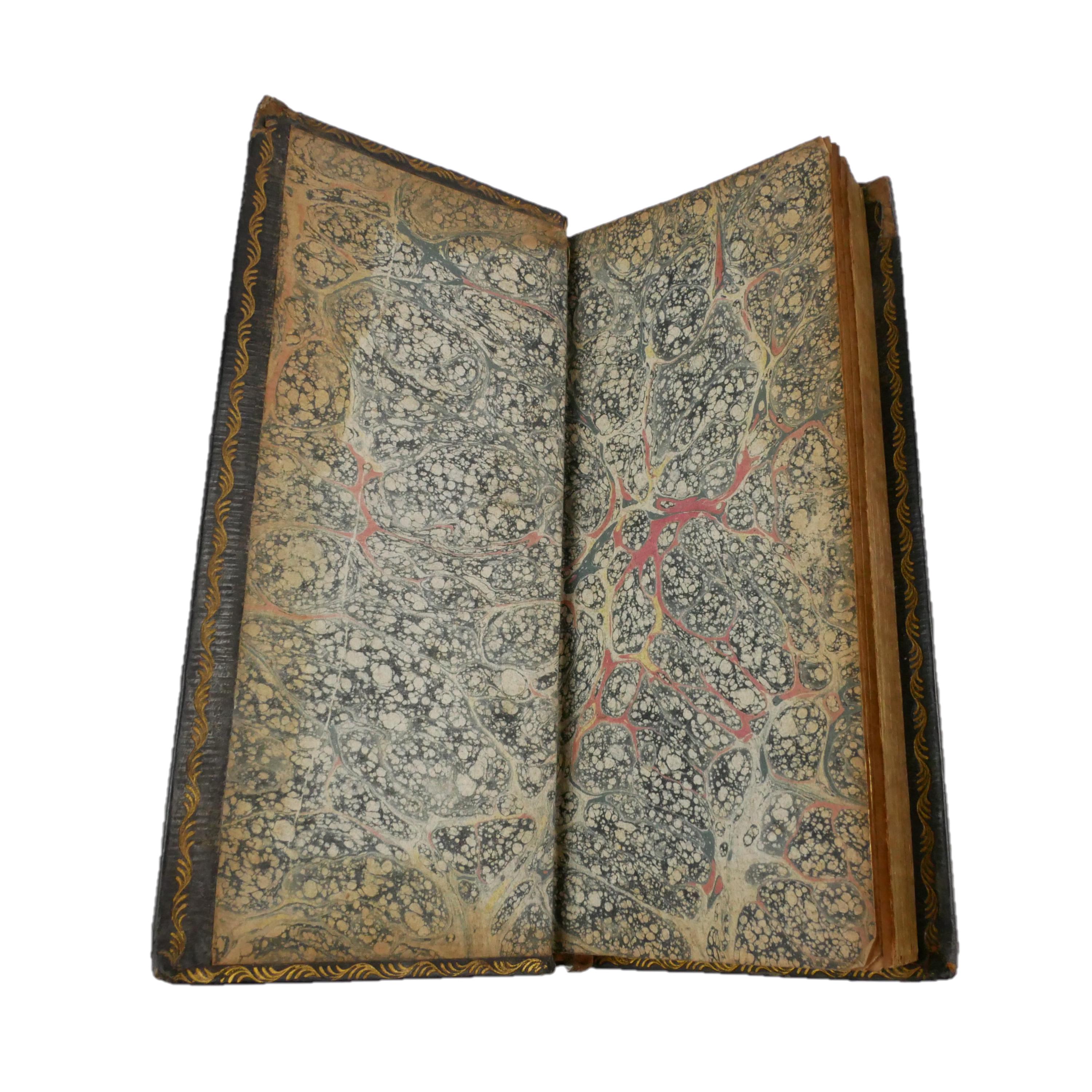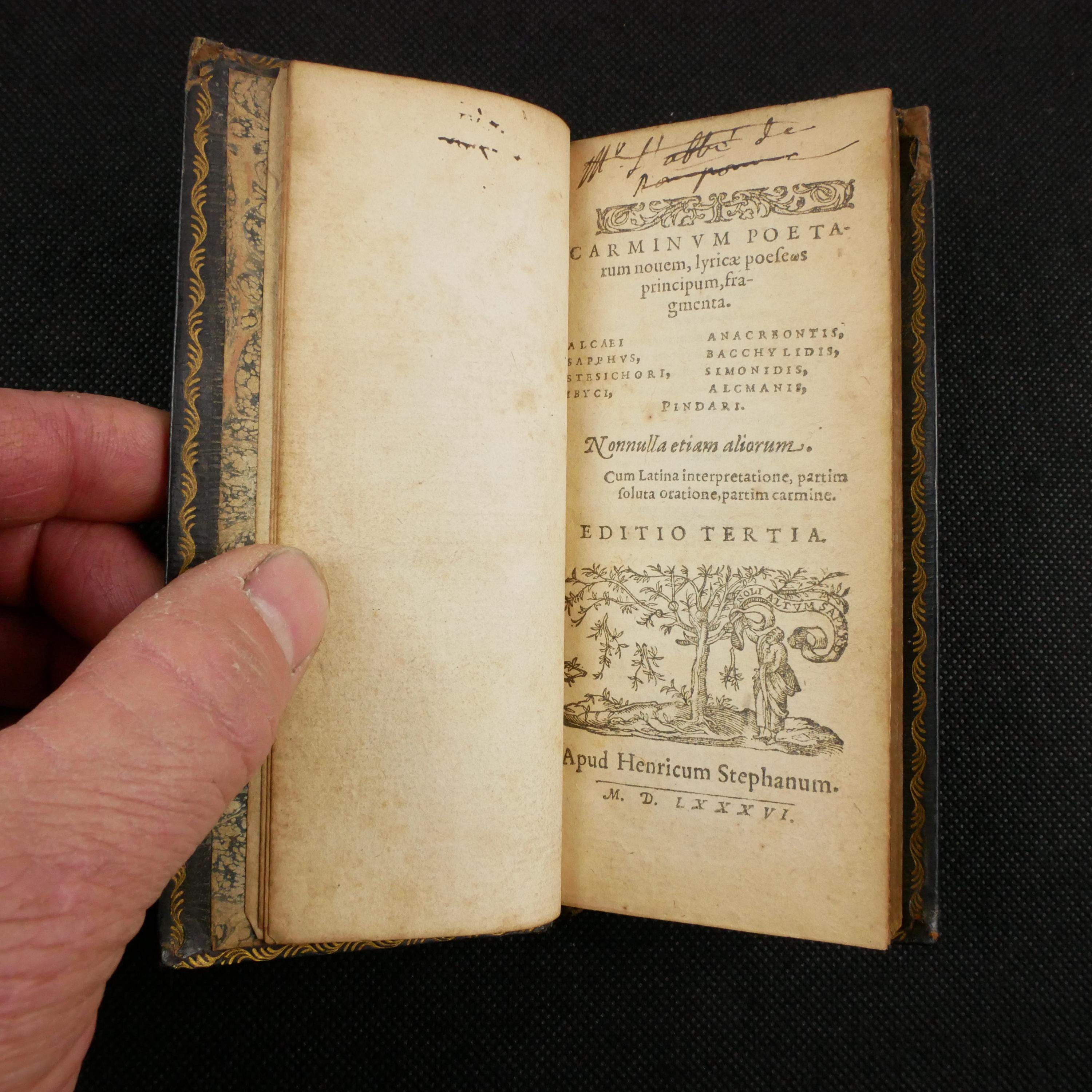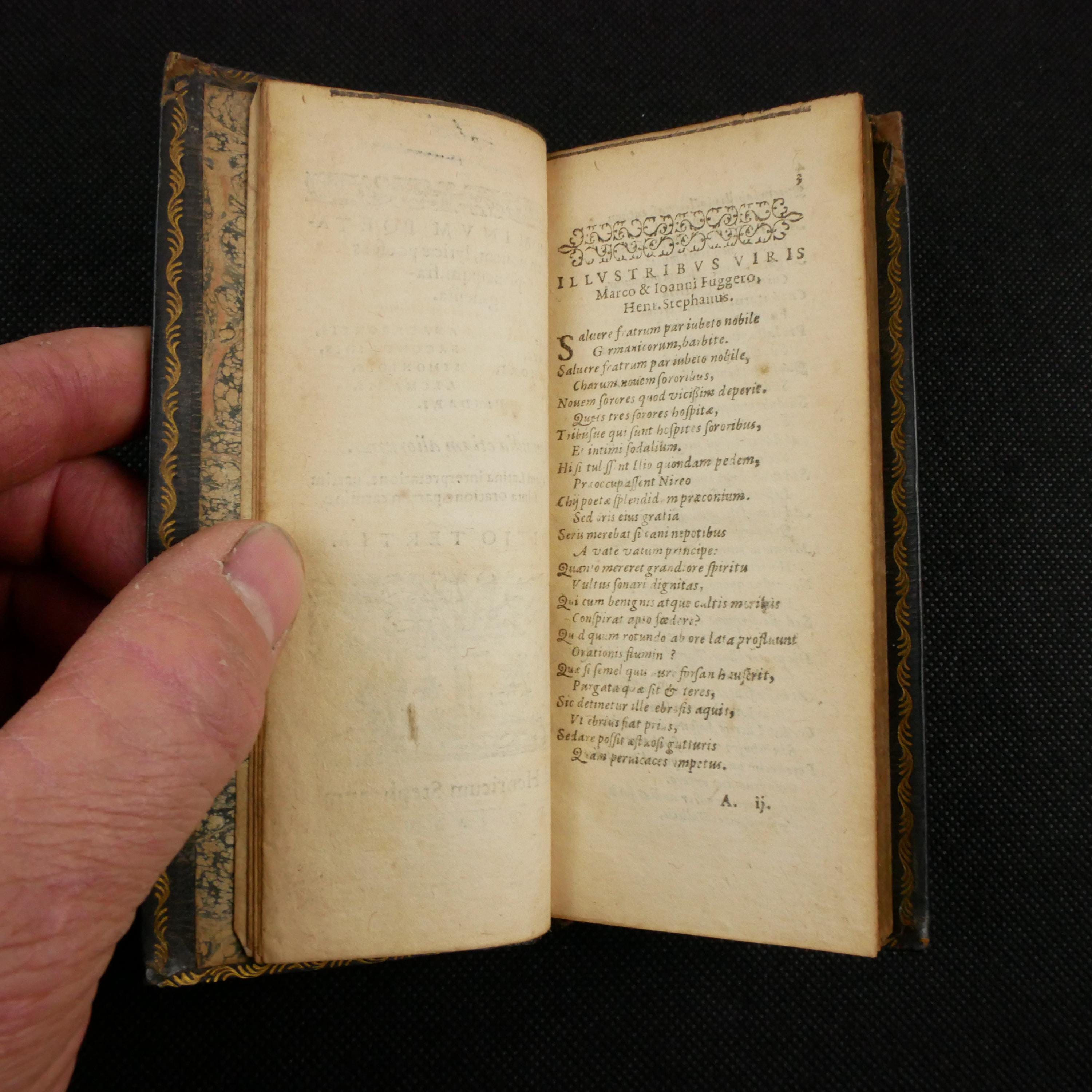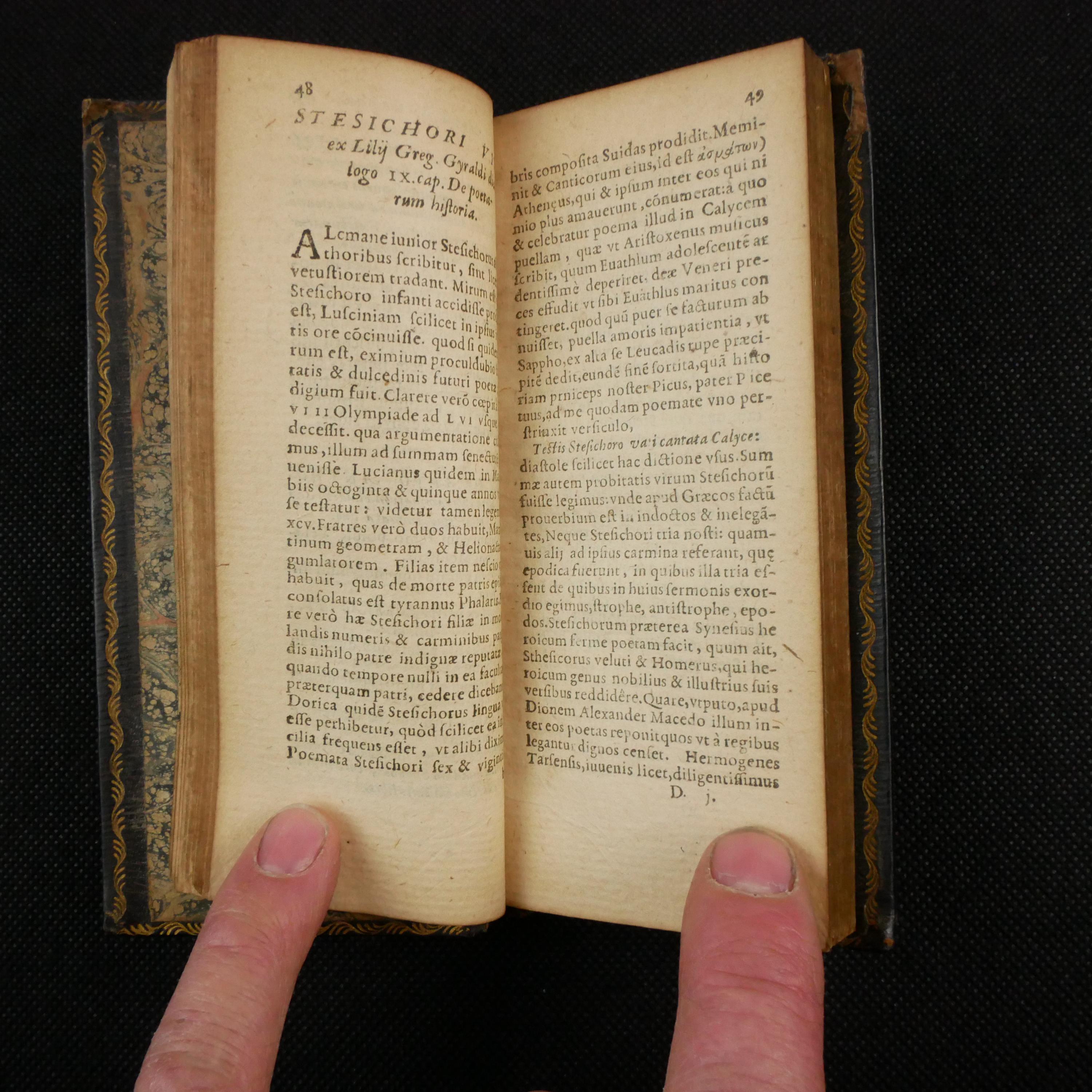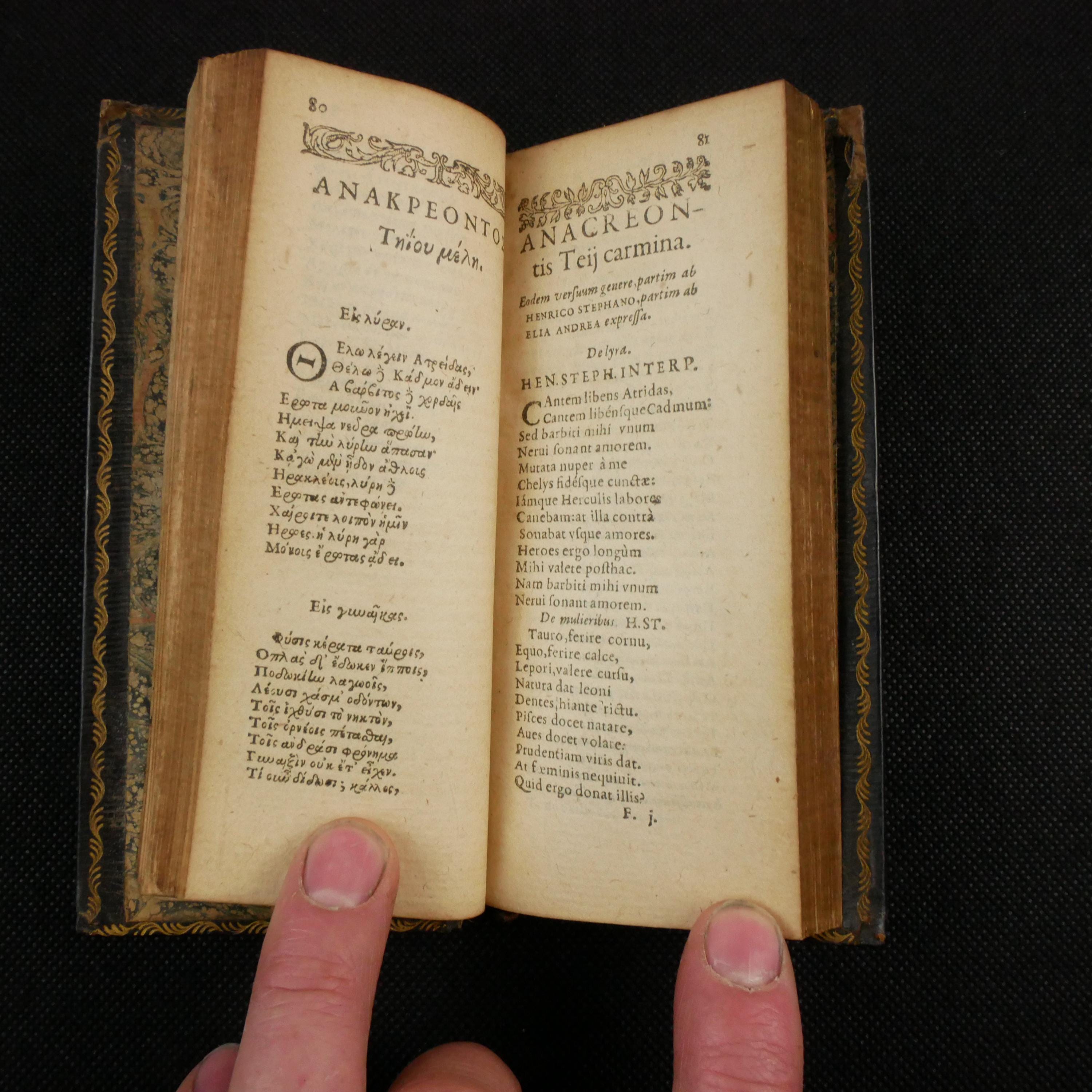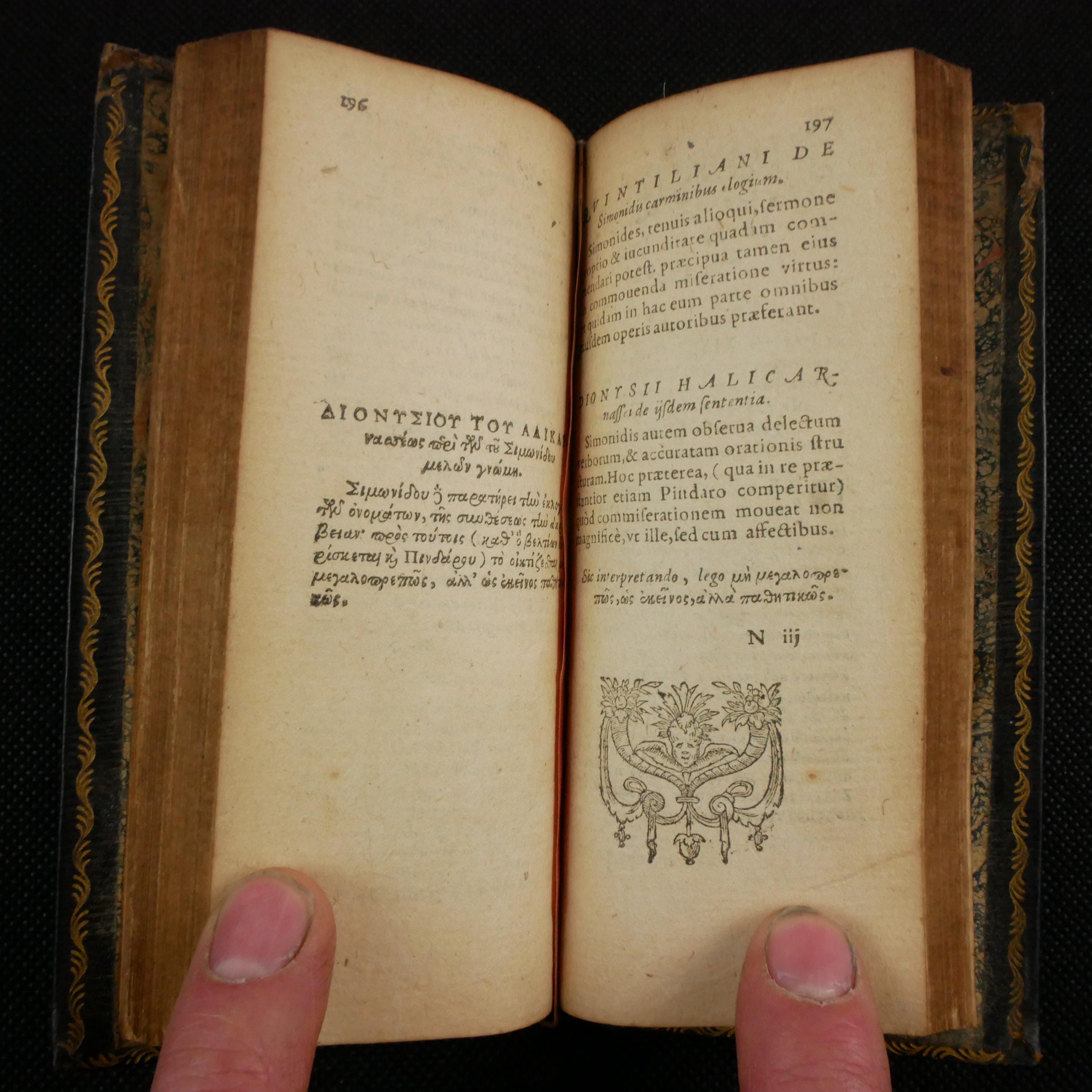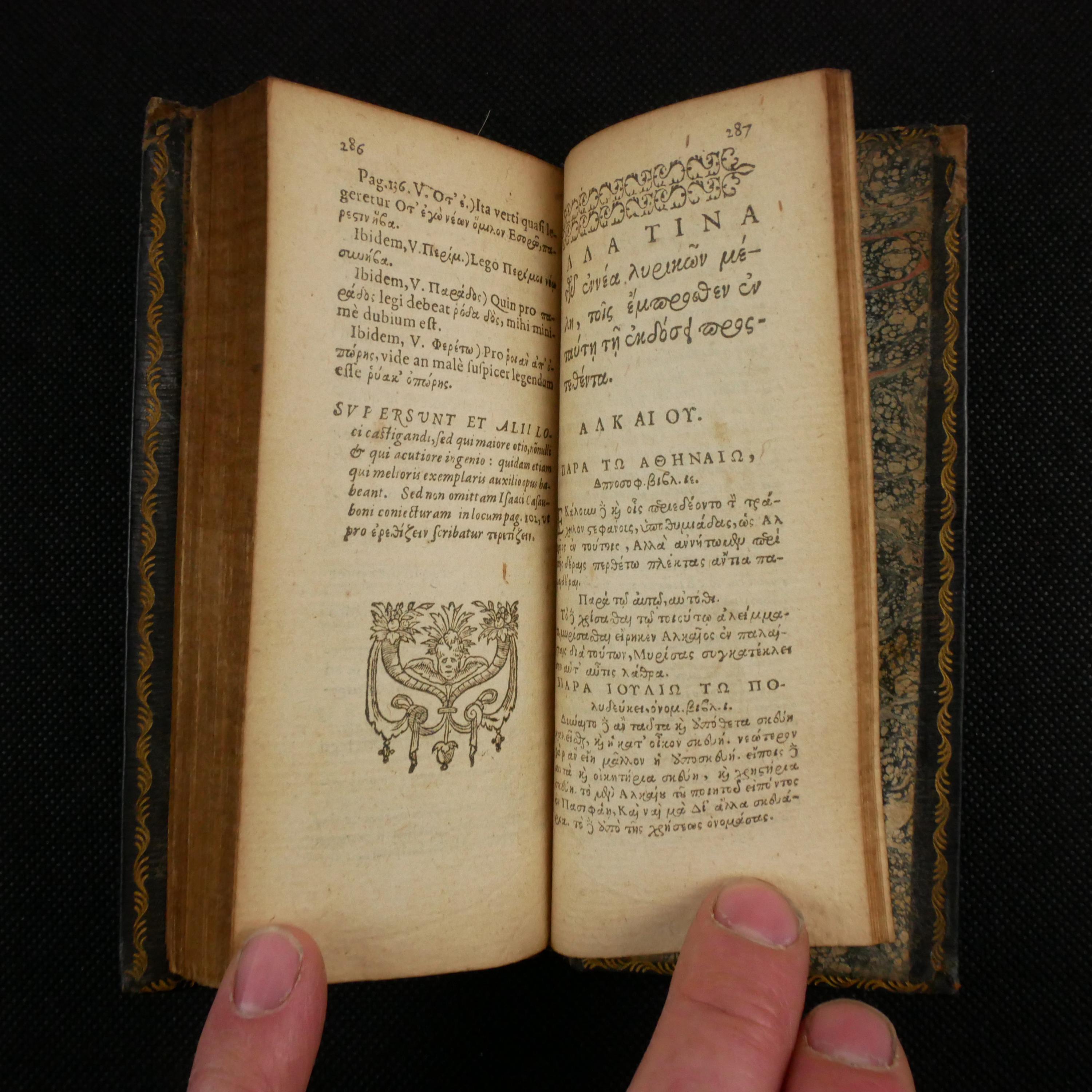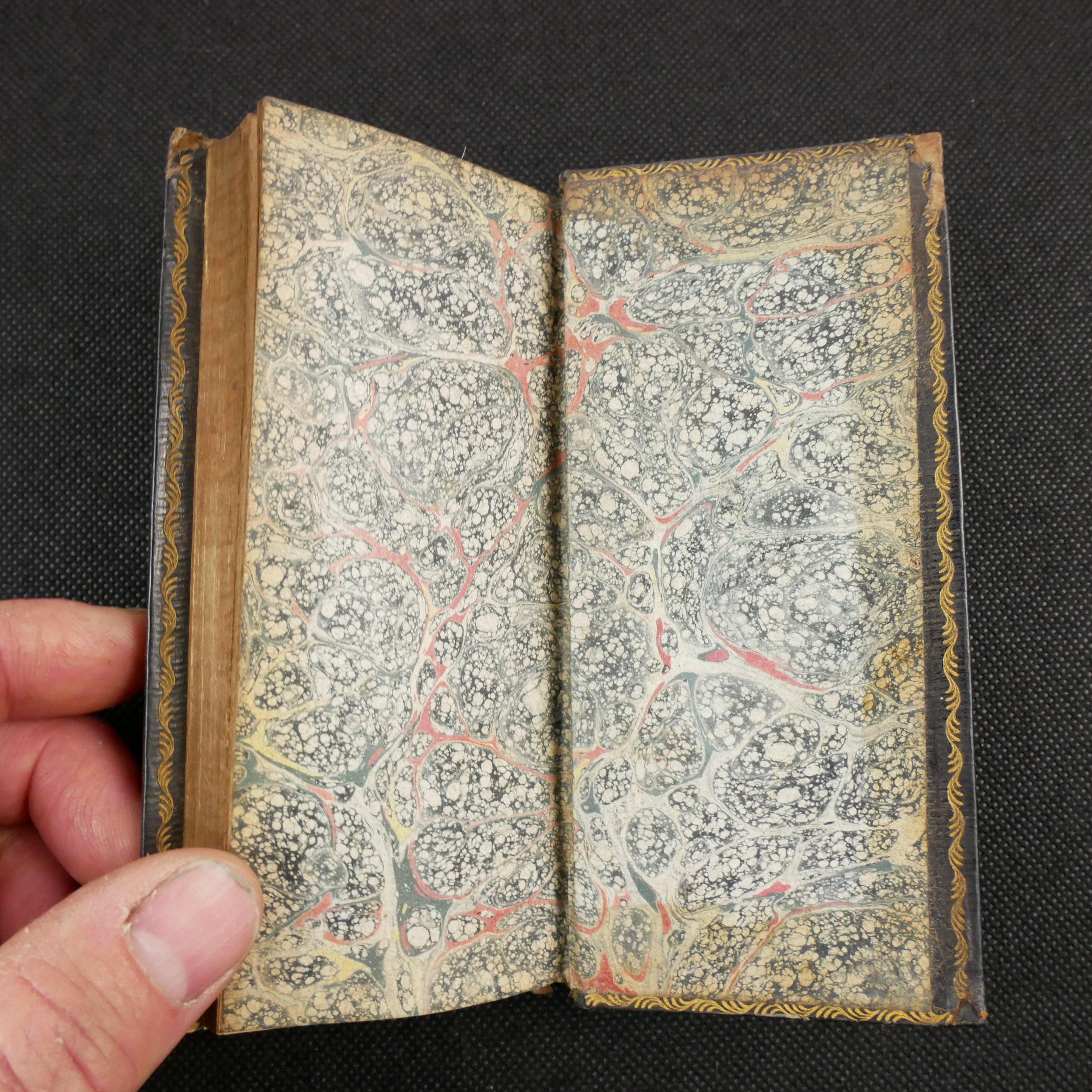1586 Carminum Poetarum Novem, Lyricae Poeseus, Fragmenta. Henri Estienne, Paris
$399.99
1586 printing (by the venerable printer of Greek,Henri Estienne) of the nine famed ancient lyrical poets, with text in Greek and Latin, in a small format (likely designed for students), bound handsomely in straight-grained morocco leather.
Title:
Carminum poetarum novem, Lyricae poesews principum, fragmenta. Alcaei, Sapphus, Stesichori, Ibyci, Anacreontis, Bacchylidis, Simonidis, Alemanis, Pindari... cum Latina interpretatione...
About the Nine Lyric Poets (edited from Wiki) -
The Nine Lyric or Melic Poets were a canonical group of ancient Greek poets esteemed by the scholars of Hellenistic Alexandria as worthy of critical study. In the Palatine Anthology it is said that they established lyric song.
They were:
Alcman of Sparta (choral lyric, 7th century BC)
Sappho of Mytilene or Eresos of Lesbos (monodic lyric, 7th century BC)
Alcaeus of Mytilene of Lesbos (monodic lyric, 7th century BC)
Anacreon of Teos (monodic lyric, 6th century BC)
Stesichorus of Metauros (choral lyric, 7th century BC)
Ibycus of Rhegium (choral lyric, 6th century BC)
Simonides of Ceos (choral lyric, 6th century BC)
Bacchylides of Ceos (choral lyric, 5th century BC)
Pindar of Thebes (choral lyric, 5th century BC)
In most Greek sources the word melikos (from melos, "song") is used to refer to these poets, but the variant lyrikos (from lyra, "lyre") became the regular form in both Latin (as lyricus) and in modern languages. The ancient scholars defined the genre on the basis of the musical accompaniment, not the content. Thus, some types of poetry which would be included under the label "lyric poetry" in modern criticism, are excluded—namely, the elegy and iambus which were performed with flutes.
About Henri Estienne, the Printer (also from Wiki) -
Henri Estienne (1531 – 1598), also known as Henricus Stephanus, was a French printer and classical scholar. He was the eldest son of Robert Estienne. He was instructed in Latin, Greek, and Hebrew by his father and would eventually take over the Estienne printing firm which his father owned in 1559 when his father died. His most well-known work was the Thesaurus graecae linguae, which was printed in five volumes. The basis of Greek lexicology, no thesaurus would rival that of Estienne's for three hundred years.
Among his many publications of Greek authors, his publications of Plato are the source of Stephanus pagination, which is still used to refer to Plato's works. Estienne was also responsible for the first printed Latin translation of the works of Sextus Empiricus in 1562, which scholars credit for the diffusion of Pyrrhonian skepticism in early modern Europe and its adoption by highly influential skeptical philosophers such as Michel de Montaigne. Estienne died in Lyon in 1598.
Bibliographic Details -
A scattering of copies recorded in the world's copies under the following record numbers:
OCLC numbers 758475360, 228685847, 29451317, among others, with copies in UC Riverside, Harvard Library, Queen's Uni. Belfast, U of Edinburgh, Huntington Library.
Universal Short Title Catalogue (USTC) number - 451985
Referenced by Gilmont in Les editions Imprimees a Geneve (number 5924)
Physical Attributes -
Black straight-grained morocco. Boards with a single gilt roll frame. Spine with six compartments composed of gilt rolls; five compartments with a central gilt floret, one compartment with the title in gilt on red, gilt chain at bottom edge. All edges gilt. Turn-ins with a leafy gilt roll. Printer's mark on title page. Some head and tailpieces.
Pages - 1-296 [8]
Collation - A-T8
Signed/gathering of eight, but in a classic 12mo style (tall, small). Measures approx. 13 x 6 x 1.5 cm.
There is a "2" on the spine but it's not in reference to volume two, as this work is complete; at the time of binding, this book likely had a pair, perhaps the Pindar that Estienne printed in the same year.
Condition -
See pictures. Binding with some rubbing and wear, corners lightly bumped and worn. A little darkening to gilt edges. Fading to turn-ins and marbled endpapers. Many annotations to back of front endpaper and binder's endpapers.
Ink struck-through annotation at top of title page. Text block toned throughout, with occasional rust spot, thumb, page-edge chip, etc. Greek and Latin text. Bottom corner chip to B1. B2 with deckled, imperfect edge, seems a paper defect from before printing. Occasional deckled edges at bottom edge, leaving them shorter than binder's trim. Dark spot leaf B7. Leaf E7 with 1" tear at bottom edge. Bottom corner K2 chipped.
Shipping from United States
Processing time
1-3 business days
Customs and import taxes
Buyers are responsible for any customs and import taxes that may apply. I'm not responsible for delays due to customs.
Payment Options
Returns & Exchanges
I gladly accept returns
Just contact me within: 7 days of delivery
Ship items back to me within: 14 days of delivery
I don't accept exchanges or cancellations
But please contact me if you have any problems with your order.
Conditions of return
Buyers are responsible for return shipping costs. If the item is not returned in its original condition, the buyer is responsible for any loss in value.
Privacy policy
We do not collect any private information. For billing, Etsy provides the service. We only receive notice that payment was made. The shipping address is provided to us by Etsy, based on what they buyer submitted during check-out. We do not store these addresses. That is the extent of the information that we receive during a transaction.

